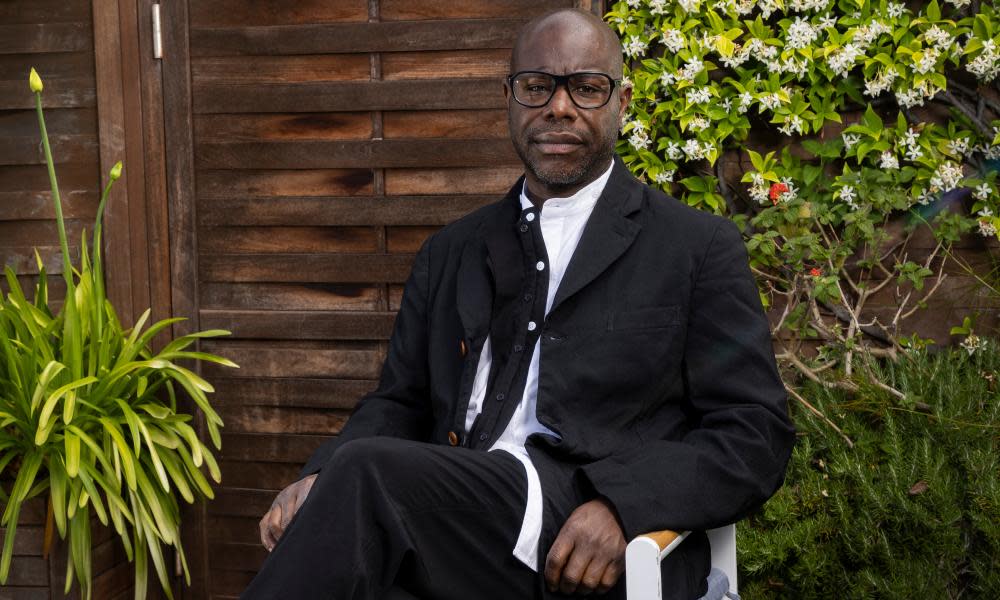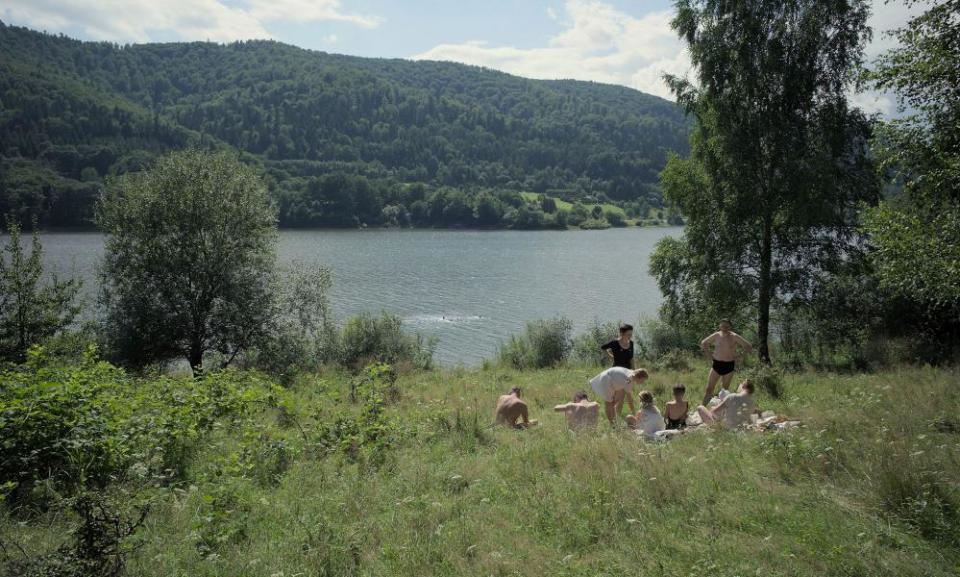Nazis and normality: UK directors unsettle Cannes with films tackling ‘unseen’ evil

Steve McQueen and Jonathan Glazer, two of Britain’s most admired and daring film directors, have disturbed Cannes audiences with a pair of extraordinary films that confront Europe’s murderous fascist past.
The directors, working independently on different projects about Nazi atrocities, both say they were prompted by the growth of political extremism and prejudice.
Glazer, best known as director of the sci-fi dystopia Under the Skin and the admired gangster film Sexy Beast, says he wants The Zone of Interest, which premiered to acclaim on Friday evening, to address “the capacity within each of us for violence”. He believes, he said this weekend, it is too easy to assume such brutal behaviour is a thing of the past.
“The great tragedy is human beings did this to other human beings,” he said. “It is very convenient to think we would never behave in this way, but we should be less certain of that.”
His unflinching look at the proximity to mass genocide in which German domestic life went on is set in the home of Auschwitz camp commandant Rudolf Höss.
McQueen’s documentary, Occupied City, also turns to historic detail to lay out the unpalatable facts that lie in the landscape of modern Amsterdam.

Speaking to the Observer in Cannes, McQueen said: “People aren’t stupid. They do realise on one level what happened, but somehow we need to smack ourselves out of this amnesia.”
The Oscar-winning director and his Dutch wife, Bianca Stigter, who wrote the script, were also prompted by the rise of the new right and Europe’s increasing political polarisation.
“The past can’t be on the surface all the time,” said Stigter, “but some things should not be forgotten. In today’s climate, with antisemitism and racism on the rise, it is good to be reminded of that moment of history.”
Both directors have turned to face Nazi horrors partly because witnesses to the Holocaust are no longer so numerous. Speaking to the press on Saturday, Glazer, who is a Jewish Londoner, said he felt it was vital to keep telling the story, despite the advice his own father gave him to just “let it rot”, and leave it to history.
“It is very important we do keep bringing it up and making it familiar; to keep showing it so that a new generation can discover it in film. The Holocaust is not a museum piece that we can have a safe distance from. It needs to be presented with a degree of urgency and alarm,” he said.
The two British films concentrate with forensic intensity on what people are capable of ignoring. While neither film portrays Nazi violence directly, both contain elements that will make difficult viewing for a mainstream audience, and not just because of their bleak focus.
Glazer’s film, made on location near the site of the former death camp in occupied Poland, is made in German. McQueen and Stitger’s documentary lasts four hours and deliberately has no narrative structure.
In each case there are few concessions to the world of popular entertainment. Glazer’s film has a lurid, deadpan mood, while McQueen’s relies on the build-up of appalling crimes recounted over footage of modern Amsterdammers going about their lives during the pandemic lockdown.

“It is about evidence of things unseen,” said McQueen. “Meandering through one of the most beautiful cities to ramble in, so there is the perversity of the fact all these things happened in such a beautiful city.
“Our film is not a history lesson, it is an experience.”
In The Zone of Interest Glazer portrays domestic life alongside the Auschwitz death camp. It has an almost surreal tone as it juxtaposes the quotidian concerns of the Höss family with the mass torture, starvation and killing going on next door. Glazer loosely based his film on the Martin Amis book and developed it after spending time at Auschwitz.
The audacity of looking at Nazi atrocities afresh has been applauded by one of Germany’s great directors, Wim Wenders.
Before watching either film, Wenders, in Cannes for the premiere of his film Perfect Days this week, told the Observer that tackling the Holocaust in film is risky, but it remains important to try.
“We should be capable of looking back at war. If we can stand the ugliness of staring it in the face and if we can then stand doing it with actors … then we can learn for the present and for the future. But it is a painful process and it can also go damn wrong.”

 Yahoo Movies
Yahoo Movies 
